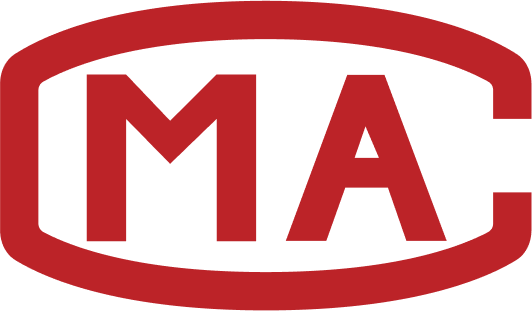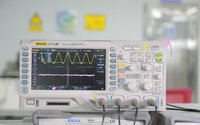Three minutes to learn about CNAs laboratory certification
Date:2021-07-30 15:45:00Views:2222
catalog:
| brief introduction | significance | Application conditions |
| Application materials | technological process | advantage |
| standard |
1. Introduction to CNAs Laboratory Accreditation
CNAs (China National Accreditation Service for conformity assessment) is the abbreviation of China National Accreditation Commission for conformity assessment. It is a national accreditation institution approved and authorized by the state certification and Accreditation Administration Commission in accordance with the provisions of the regulations of the people's Republic of China on certification and accreditation, and is responsible for the accreditation of certification institutions, laboratories, inspection institutions and other relevant institutions. CNAs laboratory accreditation is a formal recognition of the laboratory's ability to carry out specified types of testing and / or calibration.
2. Significance of applying for CNAs Laboratory Accreditation
Accreditation: it is the third-party certification that the accreditation body formally indicates that the conformity assessment body has the ability to carry out specific conformity assessment.
Accreditation body: it is the authority to implement accreditation activities (e.g. CNAs)
Conformity assessment institutions: institutions that have been implementing accreditation activities. Conformity assessment institutions accredited by CNAs include testing or calibration laboratories, inspection institutions and certification institutions.
CNAs laboratory accreditation, as we often call it, is the procedure that CNAs, an accreditation body, evaluates and recognizes the specific testing or calibration capabilities (technical and management capabilities) of conformity assessment institutions such as testing / calibration laboratories.
Certification: it is a third-party certificate related to products, processes, systems or personnel, which is applicable to all conformity assessment objects except the conformity assessment organization itself. For example, we conduct product certification, quality system certification and auditor certification, but the certification is not applicable to laboratories and other conformity assessment institutions. Take an example for your understanding. After CNAs approves a certification body, the certification body can carry out certification activities related to products, processes, systems or personnel.
(1) It indicates that it has the technical ability to carry out testing and calibration services according to the corresponding recognized standards;
(2) Enhance market competitiveness and win the trust of government departments and all sectors of society;
(3) Recognized by the national and regional accreditation bodies of the parties signing the mutual recognition agreement;
(4) Have the opportunity to participate in bilateral and multilateral cooperation and exchange of accreditation of international conformity assessment institutions;
(5) CNAs National Laboratory Accreditation Mark and ILAC international mutual recognition joint mark can be used within the scope of accreditation;
(6) Included in the list of approved authorized institutions to improve their popularity.
(7) Prove that its management level and technical ability have reached the international advanced level.

3. Conditions for applying for CNAs Laboratory Accreditation
(1) It has a clear legal status and its activities shall meet the requirements of national laws and regulations.
(2) The management system meeting the recognition requirements has been established according to CNAS-CL01, and has been officially and effectively operated for more than 6 months;
(3) Have conducted complete internal audit and management review, and can achieve the expected purpose;
(4) The applied technical capability meets the requirements of cnas-rl02 capability verification rules, that is, whenever possible, each field shall participate in capability verification activities or measurement audit at least once and obtain satisfactory results;
(5) Have the resources required to carry out testing / calibration activities within the scope of application, and whether the requirements of equipment, facilities, sites and personnel can meet the requirements;
(6) Comply with CNAs accreditation rules, accreditation policies and other relevant provisions, including paying accreditation application fees.
4. Materials to be submitted for CNAs Laboratory Accreditation
(1) Documents proving the legal status of the laboratory;
(2) Current effective quality manual and procedure documents of the laboratory;
(3) Complete internal audit and management review report of the laboratory;
(4) Block diagram of laboratory organization;
(5) Laboratory plan;
(6) A description of the activities carried out by the laboratory and a description of the relationship between the two when the laboratory is part of a legal entity;
(7) Verification of the current effectiveness of the standards / methods applied for approval (submission of verification report);
(8) Verification of foreign standards applied for approval;
(9) Non standard methods and confirmation records (supporting materials);
(10) Capability verification records meeting the requirements of cnas-rl02 capability verification rules, that is, whenever possible, each field participates in at least one capability verification activity or measurement audit and obtains satisfactory results, or evidence that effective corrective measures have been taken for unsatisfactory results;
(11) Participation in inter laboratory comparison (submit the results and evaluation of inter laboratory comparison);
(12) Test report / calibration certificate and uncertainty evaluation report of typical items;
(13) Description of quantity traceability (only provided when applying for calibration capability approval);
(14) Application fee payment voucher
5. Application for CNAs laboratory accreditation process
[application] - [acceptance] - [document review] - [on-site review] - [rectification] - [approval and issuance]
6. Advantages of CNAs Laboratory Accreditation
1. Enjoy national government subsidies;
2. External testing can be carried out;
3. Provide laboratory testing capability;
4. It can be used as a corporate image display;
5. Have the opportunity to become a member of the National Laboratory.
7. CNAs laboratory accreditation specification
Accreditation specification: it is the general name of accreditation rules, accreditation criteria, accreditation guidelines and Accreditation Scheme documents.
Accreditation rules (R Series): CNAs's policies and procedures for implementing accreditation activities, including general rules and special rules.
Accreditation criteria (Series C): basic requirements to be met by CNAs accredited conformity assessment bodies. Including basic standards (such as relevant ISO / IEC standards and guidelines adopted equally) and their application guidelines or application instructions (such as application guidelines for relevant ISO / IEC standards and guidelines formulated by IAF and ILAC, or normative documents formulated by other relevant organizations, as well as specific requirements formulated by CNAs for special industries, etc.).
Accreditation guidelines (G Series): CNAs's instructions or application guidelines for accreditation criteria, including general and special instructions or application guidelines.
Accreditation Scheme (s Series): it is the supplement of CNAs to the above accreditation rules, accreditation criteria and accreditation guidelines for special fields or industries.




 Weixin Service
Weixin Service

 DouYin
DouYin
 KuaiShou
KuaiShou




















